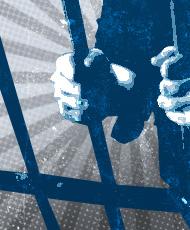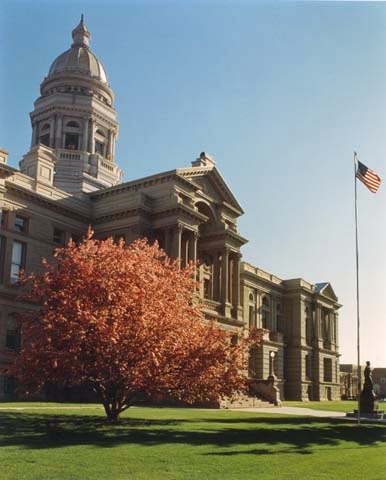News & Commentary
Nov 19, 2014
What the numbers tell us about students with disabilities
On October 21 the U.S Education Department’s Office for Civil Rights issued guidance to schools reinforcing the fact that bullying is not to be tolerated in our schools. The guidance included a reminder that this applies to those students with disabilities. Section 504 of the Rehabilitation Act and Title II of the Americans with Disabilities Act outline school’s responsibilities to take immediate action to investigate any allegations of bullying and to take steps to stop the bullying and ensure prevention of any reoccurrence. All programs that receive federal funding are mandated to bar discrimination on the basis of disability.

Sep 30, 2014
It's time to talk about militarized policing
The shooting of an unarmed teen in Ferguson, Illinois brought the reality of the militarization of local police to the forefront of the nightly news and front pages of our newspapers. The ACLU has been investigating this issue, and in June of this year, published the report War Comes Home: – The Excessive Militarization of American Police.

Jul 01, 2014
ACLU of Wyoming goes to Cody
Last week the ACLU of Wyoming staff attended the 26th Annual Conference of the National Consortium on Racial and Ethnic Fairness in the Courts hosted by the Heart Mountain Wyoming Foundation in Cody. Keynote addresses from Honorable Judge Lance Ito, former U.S. Secretary of Transportation Norman Mineta, and former U.S. Senator Alan Simpson set the tone for the entire conference. Each of them spoke about their experiences with Heart Mountain, and detailed how these experiences impacted their respective professional careers.

May 28, 2014
Lock ‘Em Up and Throw Away the Key
We believe that the character of society should be judged on how we treat our most vulnerable members. The ACLU of Wyoming advocates for the safe and humane treatment of prisoners – both for their sake while they are incarcerated and for society’s sake when they are released.

Mar 19, 2014
2014 Budget Session: Legislative Wrap-Up
The Wyoming Legislative session ended last week on a disappointing note with Representatives Bob Nicholas (R- Cheyenne) and Tim Stubson (R-Casper) destroyingSF 28 Post- Conviction actual innocence and SF30 Compensation for persons exonerated based on DNA evidence. Rep. Nicholas amended both bills to include onerous hearing provisions that indicated that he was on a crusade to ensure that those wrongly incarcerated would not be compensated for the miscarriage of justice. The House members refused to compromise on the amendments in the conference committee which led to both bills being indefinitely postponed. The Casper Star-Tribune, Wyoming Tribune Eagle and WyoFile all wrote excellent articles on this travesty. Both bills started with good support on introduction and an understanding with most legislators and observers that the bills were needed, if not long overdue. It is frustrating to see such willful pique in legislators.

Feb 20, 2014
Legislative Update: Week Two
As usual the first week of the 2014 Wyoming legislative budget session was brisk and many non-budget bills had been filed for consideration. During a budget session any bill that is not an appropriations or budget bill must receive a 2/3 vote for introduction. A number of bills received that 2/3’s vote this year giving committees a lot of work to accomplish in the first weeks of the session. Thursday February 20, 2014 was the last day for bills to be reported out of the Committee in the House of Origin. Those bills that were not reported out were effectively dead for the rest of the session. The last Medicaid expansion bill to be considered was not reported out of committee and so died in committee on Wednesday the 19th. The Chairman of the Committee did not hold a vote on the bill and effectively killed it without having any of the members on record with a vote.

May 16, 2013
Why Does the Wyoming ACLU Advocate For Prisoners?
Because the character of society is judged on the basis of how it treats its weakest members. In a country that imprisons more people than any other in the world, someone must look out for the vulnerable human beings behind bars — both for their sake while they are incarcerated and for society's sake when they are released. In fact, about 97% of Wyoming prisoners will eventually return to our communities. How we treat prisoners should give us an idea of what we should expect from them when they come home.Data compiled from complaints received from prisoners in Wyoming is being released in the second annual report “Incarceration In Wyoming,” which provides details about the numbers and nature of complaints the organization received in 2012. Deficiencies in medical and mental health care continue to top the list of complaints from prisoners in Wyoming. Poor medical and mental health care generated thirty percent of complaints from prisons, and well over a quarter of the complaints from jails. We hope that making this information available will increase public awareness, accountability and transparency of detention facilities in Wyoming. Promoting humane conditions of confinement, consistent with constitutional protections like health, safety and human dignity, is one of our highest priorities. We have also started to look at the effects of solitary confinement on prisoners in Wyoming – the practice of confining a prisoner alone in a cell for 22‐24 hours a day with little human contact and severe restrictions on privileges, such as reading material, television, visitation and participation in rehabilitative group activities. There is a popular misconception that solitary is used only for the most violent and dangerous prisoners. In fact, many low‐risk prisoners may be housed in solitary because they have broken minor rules or filed lawsuits. At WDOC institutions, 506 prisoners were held in solitary confinement in the past year, 146 of them diagnosed as mentally ill.Wyoming has no statutes that address minimum standards for jails or prisons. The Wyoming ACLU is the only agency in the state that will investigate or review inmate complaints regarding the conditions of confinement. “Incarceration” includes a directory of all Wyoming Department of Corrections institutions and county jails, along with “Know Your Rights” information. We distribute these resource guides to inform prisoners of their constitutional rights based on the nature of their complaint. Download below:“Incarceration in Wyoming: 2012 Report on Prison and Jail Complaints” (in pdf)

Apr 05, 2013
Don't Do The Crime If You Can't Do The Time
Jordon Steffen’s March 2013 article in The Denver Post began with this sentence: “The number of juveniles committed to the Colorado Division of Youth Corrections has dropped by 44 percent in seven years, the result of programs that have put more focus on rehabilitation than detention.” Joshua Wolfson’s February 26 Casper Star Tribunearticle, “Wyoming locks away fewer juveniles, but still lags behind rest of nation,” states that even though Wyoming is jailing fewer children that it has in the past, Wyoming still detains more youth than any other state in the nation but South Dakota. While the rest of the nation has seen a steep decline in the rate of juvenile detention Wyoming has a youth detainment rate nearly twice the national average.Not only is Colorado’s youth detention rate down; their juvenile justice system numbers are down in other areas:• 28% decline in juvenile arrests• 1,160 fewer juvenile court cases in the past year• 13% decline in youth recidivism rates in 2012Colorado’s elected officials made a unified and concentrated effort towards reforming their juvenile justice system and worked to bring Colorado to the forefront of the nationwide movement to provide youth with a system that is effective in guiding children to successful and productive lives.The Colorado system uses a number of best practices techniques including:• early intervention• mentors • mental health and substance abuse rehabilitation• individual treatment plans for each juvenileYouth corrections savings can now be moved into child welfare programs in order to provide services for at risk children as young as 5.In order to achieve what Colorado and other states are accomplishing, a state must have not only a unified juvenile justice system, but elected officials that are engaged and knowledgeable about reform. Wyoming has neither.

Mar 19, 2013
ACLU hosts “Code of the West” film screening in Cheyenne
Ballot initiative victories in Colorado and Washington have brought a new political significance to the national conversation about marijuana policy. A screening of the documentary film Code of the West will be hosted by the ACLU of Wyoming on Tuesday, March 26th at 6:30 pm in the Willow Room at the Laramie County Library in Cheyenne, followed by a community discussion led by Leonard Frieling. The screening is part of a national film tour. Code of the West documents the Montana Legislature’s debate of marijuana regulation and follows the political process of marijuana policy reform – and the recent federal crackdown on medical marijuana growers across the country. The film tracks key figures on each side of the debate. Leonard Frieling is a member of LEAP (Law Enforcement Against Prohibition). He is a former Municipal Court judge for the City of Lafayette, Colorado, and was instrumental in the efforts surrounding Amendment 64. Mr. Frieling currently practices criminal defense law in Boulder, Colorado.Today, medical marijuana is at a serious crossroads. The ACLU of Wyoming is hosting this film as part of its mission to bring attention to the harms resulting from our current drug policies. With neighboring states like Montana and Colorado enacting sensible drug law reforms, this subject is more relevant than ever to Wyoming. Please join us at our screening of Code of the West and learn more about the issue. This event is free and open to the public.Tuesday, March 26th at 6:30 pmLaramie County Library – Willow Room2200 Pioneer AvenueCheyenne, WY 82001Click here for more information

Stay Informed
Sign up to be the first to hear about how to take action.
By completing this form, I agree to receive occasional emails per the terms of the ACLU’s privacy statement.
By completing this form, I agree to receive occasional emails per the terms of the ACLU’s privacy statement.
